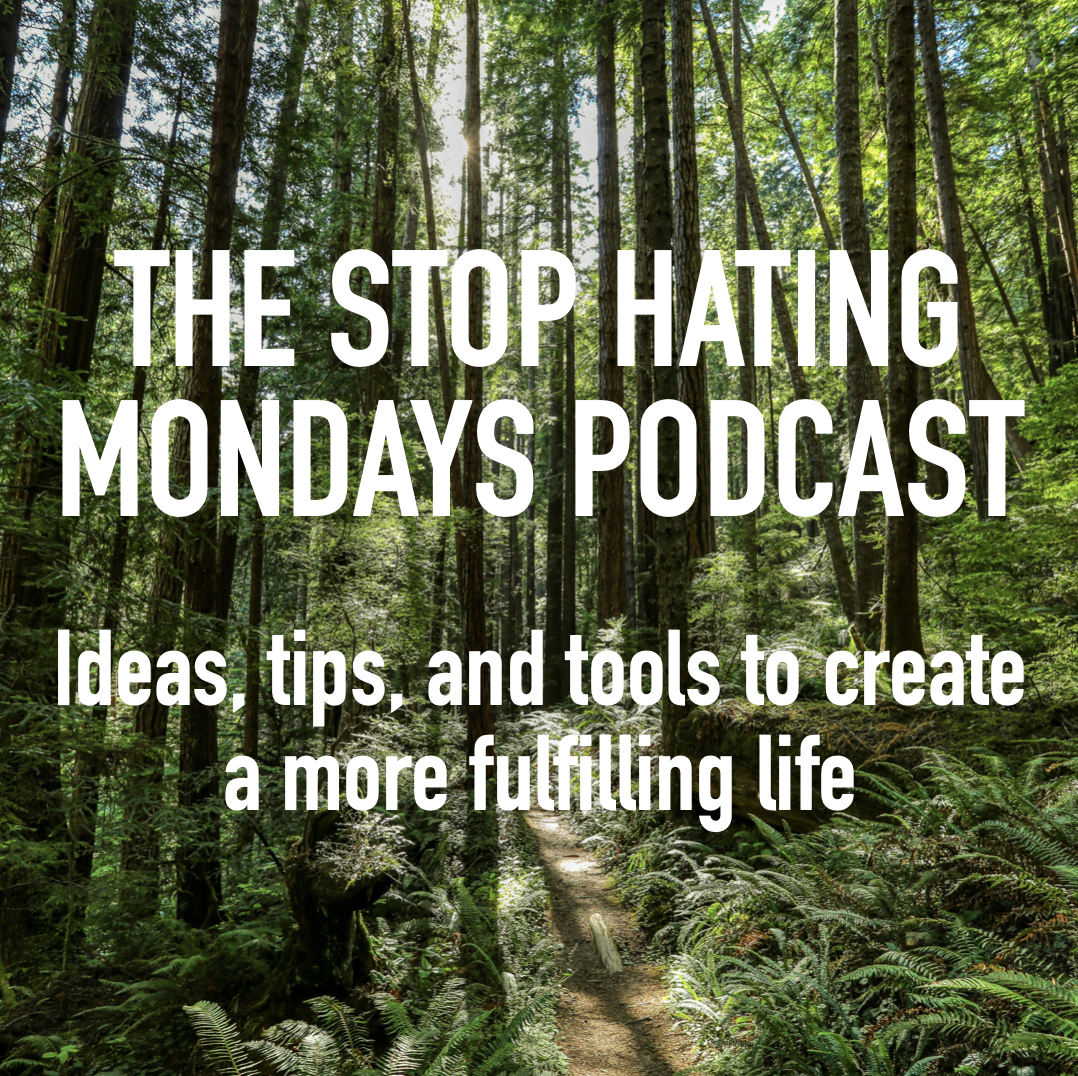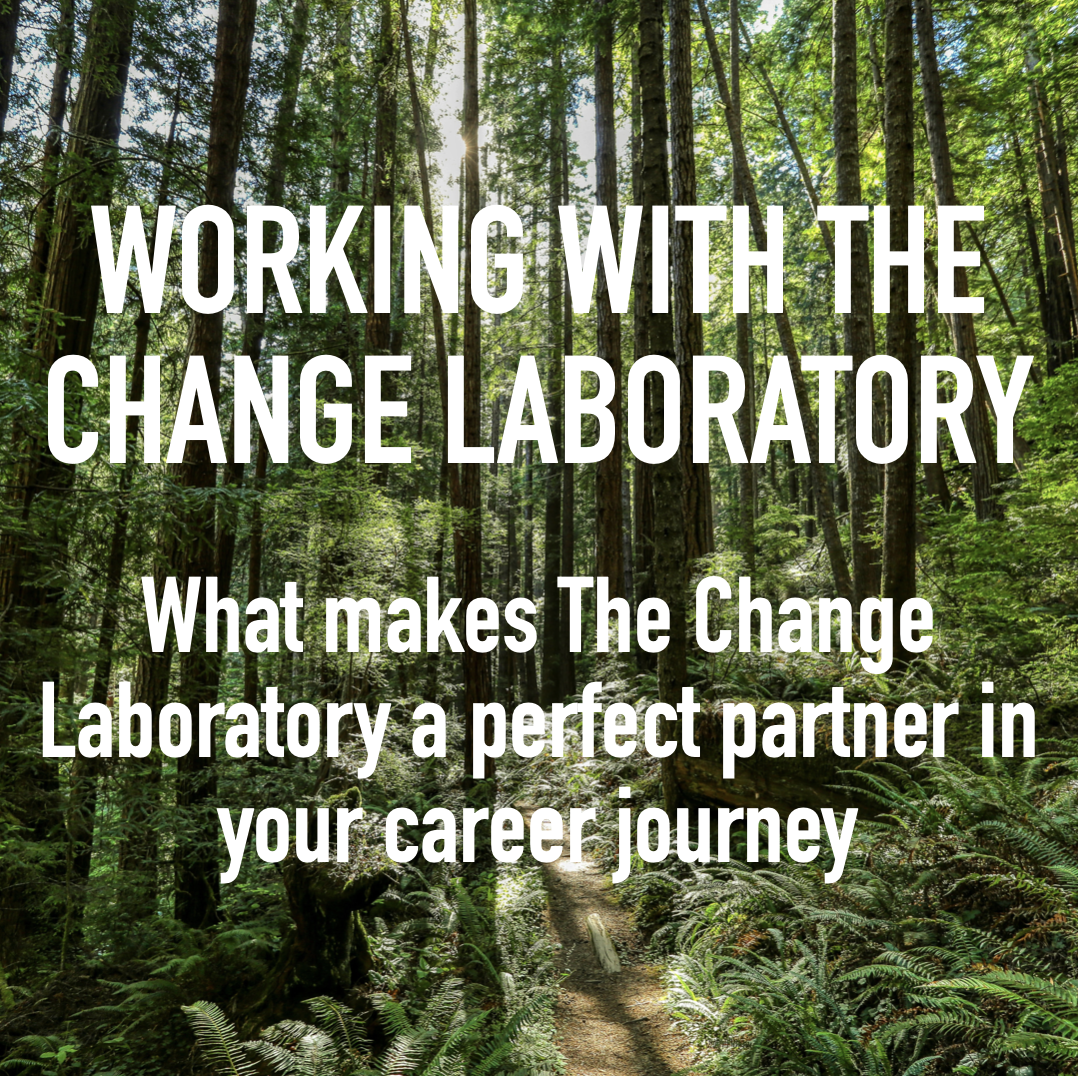How to Avoid the Trap of Workism - The Stop Hating Mondays Podcast
Kent R.
Workism is the twisted notion that your value is tied to employment and that work can serve as the primary (if not sole) source of meaning in your life. If that idea sounds outlandish to you, well, it is. But workism is a very real phenomenon and it is having devastating consequences on people’s mental health and well-being.
Transcript
(Transcripts are auto-generated and may contain minor errors)
How to Avoid the Trap of Workism
Kent
The change laboratory's core mission is to help people be more personally and professionally fulfilled. So, we're big proponents of finding meaning in everything you do – in all the roles that you have. of course, that includes seeking a sense of meaning, a deep sense of meaning and fulfillment from your work, and that's where we help most People and workgroups is with career and workplace issues.
But there's a problem.
There's an overidentification with these roles that I'm speaking of that forces people to get lost in the role and sort of flailing in terms of who they are and what they're doing with their life.
Why is it easy to get lost in your work or your career roll. Well, according to the Bureau of Labor Statistics, the average American works 45 hours a week. In the crazy competitive industries that so many people want to work in, like finance and especially tech, surveys show that the number is closer to 60 hours a week.
Now, here we are in a pandemic where people are not commuting. They're working from home. I think it almost half of people are working from home. What are people doing with that extra four to five hours on average that they used to spend commuting.
Hint… They're not working on other roles; they're adding that to work.
What this all adds up to – all this focus on the working career role? Workism is the twisted notion that your value is tied mostly to employment and what you do and that that can serve as the primary, maybe even the sole – we know it's the sole of the people we work with meaning in your life.
If that sounds outlandish to you, it is. And it's why the core thing we work on here at the Change Laboratory is dismantling workism.
'Cause it's really well and it's having devastating consequences on people's mental health and well-being. Yeah, it sounds strange. We are saying that the search for meaning in work or again any other role may be making you less filled. Searching for meaning is making you less fulfilled.
So yeah, in our many years of serving as change consultants to individuals and corporations, we've identified workism and overidentification, especially with professional roles to be one of the biggest roadblocks to achieving authentic fulfillment across your life. When people come to us, regardless of the problem or what they think the problem is – burnout, inability to get a promotion, interpersonal issues, workgroup issues – it can all track back, most of the time, to workism at play.
But there's a way – an antidote – and that's why we've decided to make workism, or how to avoid the trap of workism, the very first topic we cover on this podcast. I'm Kent and this is Caanan and you're listening to the inaugural episode of the Stop Hating Mondays podcast.
Caanan
One of the reasons Workism Is so Insidious, is that it can be really tough to identify. In fact, a lot of what we now consider to be hard work, or, you know, putting in your time, s actually workism.
So this is our first tip: understand what workism looks like.
Kent
Yeah, so the symptoms of workism… kind of getting into what I said in the intro:
Long hours.
Expectation or your instinct to always be available
A never-ending stream of last-minute deadlines
The constant fear that you're underperforming.
The constant message that despite your best efforts, you are underperforming.
These are big things we work with individuals and workgroups. An unhealthy level of competition among your work group. You know, evil companies love this. They love bringing big shots in and then making them feel like crap – like they're not good enough – and they don't even have to say anything to do it. You just put a bunch of high achievers who don't know themselves who suffer from workers who are addicted to their role of work next to each other. And you're going to get more productivity out of five people, then you would out of 50 low- to mid-performers.
Caanan
Maybe you introduce a force ranking system so that you're pitting everybody against one another.
Kent
Yeah, yeah, this is probably bad. This almost sounds like a podcast giving evil corporations advice. This is the stuff we work to dismantle within corporations.
Those are the symptoms of workism?
Caanan
Yeah, I think what's so sad and what I alluded to in the opening to this tip is that, for many people, this just all sounds like business as normal.
But that's kind of the whole point.
Workism is so insidious because, especially in the US and in those industries you mentioned – tech, finance, etc. – workism is the prevailing culture. I mean it is business as usual.
Kent
Yeah.
Caanan
But that doesn't make workism OK.
Caanan
The culture of workism is a great transition to our second tip, and as we've said before, there is absolutely nothing wrong with wanting to find some meaning and fulfillment in work. That's a good goal.
You should be deriving some satisfaction beyond the paycheck.
But as we said in the opening, that desire has made us all kind of vulnerable to exploitation. And sadly, ironically, it can make us even less fulfilled. So, our next tip is to understand why workism even exists.
Kent
Yeah, yeah so workism exists because it can exist and it's a highly effective way to drive increased productivity. This tip is both obvious and a little dangerous because it's basically just pointing most people to what’s in front of their eyes. I guess I just said 45 or 60. I'd argue more than 60 hours per week. It exists because it is the common structure in so many workplaces. Increased productivity means reduced labor costs and higher profits, and that's a powerful motivator for employers to lean into these cultures of workism. Plus, you're spending all your time doing this like it's easy for you to fall into this trap of like “I'm gonna make all my difference at work” and make everything else – all those other roles in my life – fit into that… or fit around that.
Caanan
I think it's important to call out that all of this nefariousness doesn't even mean that employers are actually being nefarious, although – let's be honest – many are because it makes them a lot of money. But we work with plenty of companies where, you know, the decision makers and the leaders are in the trap of workism as well.
Kent
Yeah, they're buying into the same structure that you are, yeah?
Caanan
Yeah, and they don't even know that they're driving is a culture of workism. They are simply trying to engage employees and drive the same sense of purpose and work that they themselves are searching for. So, yeah, your leaders may be driving the culture of workism because their consumed by workism.
Caanan
OK, this can all sound very dire and depressing. But as you said in the opening, Kent, we're always looking for ways to help people find more meaning in their lives and feel more fulfilled. So, I want to end this podcast on a positive note.
Our third tip – this one's going to be both simple and profound – is to understand that knowing yourself is the antidote to workism.
Kent
Yeah, and I have to get my usual disclaimer here and say… This is everywhere in the work we do across our website… in other podcasts… You’re going to see it figure heavily into our foundational series of podcasts that are meant to represent the core of what we do. This concept of knowing yourself…
Caanan
Everywhere.
Kent
…is the core and the profound main takeaway from our book. So, without knowing yourself – without this self-awareness – workism can undermine your fulfillment by leading you to optimize out the very things in your life that make you genuinely happy so that you can spend more time working.
And I mean, we're talking about… You got a bunch of other roles, not just work, so when we talk about optimizing out, I mean minimizing all these other roles, which is awful enough, but at the core of all your roles – and most importantly the role we're speaking of here, your career – not knowing yourself is putting you at a disadvantage in the first place. So not only are you not bringing yourself to this role, that you're spending 60 plus hours a week at, your other roles are getting further diminished and you don't already know yourself and what you bring to those roles.
Caanan
Yes, let's just baseline this. The only way to find more meaning in your life and become more fulfilled is to know yourself.
Kent
OK, are three tips for how to avoid the trap of workism. Number one, recognize workism. Number two, understand why it exists. And number three, know yourself.
Caanan
Know yourself.



